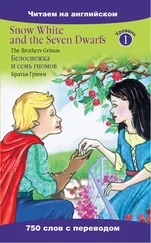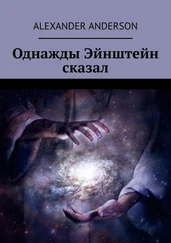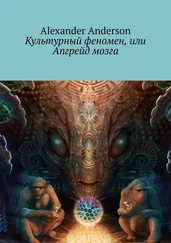Olympias would have been furious to see me wed a barbarian. Behind the princess Hephaestion, Cassander, and Perdiccas stood like statues, frozen in icy pride, their faces betraying vehement indignation. City dignitaries nervously fluttered their peacock-feather fans, determined to see the end of the Achemenides dynasty. There was palpable impatience in these Babylonians already dreaming of a newborn leader, a legitimate master of both East and West, their future emperor, he who would make Babylon the center of the world.
Mazee, the new regent, gave me a wink, a signal urging me to reach out my hand as a symbol of my acceptance. But this girl of royal blood was a disappointment to me! Kneeling humbly at my feet, she proved to be an insignificant creature, without music or color, a vessel, a simple recipient for the male seed, ready to conceive and give birth. I felt no emotion. The infantile excitement of seeing my dream realized had just come crashing down. She was not the young woman in red waiting for me at the top of a rock. My precious pearl was not here.
Instead of holding out my hand to her, I stiffened and announced:
"Princess, I grant you my protection. You, your mother, and your sisters may keep your titles and privileges from the previous reign. You need be afraid of nothing from now on. May you be venerated like members of my own family!"
Cassander was moved to cough, Hephaestion smiled, Perdic-cas wiped his brow. The Babylonians, disconcerted, withdrew, and the princess followed their lead, returning to her gilded prison. I spent a feverish night, tossing and turning in the vast imperial bed, wondering whether I was condemned to be a king without a queen, a conqueror without an heir. Was this the sacrifice expected of a man spoiled by the gods?
The following morning Oibares asked to speak with me. Unable to insist I take a particular wife, he made me a second and final proposition: to convert me to their religion so that the supreme god, the source of all light and creator of the world, Ahura Mazda, might invest me as the only king over many and the only master of many. A brief presentation of the religion founded by Zarathustra was all I needed. Ahura Mazda, the all-powerful winged god, reminded me of the Demiurge venerated by Aristotle. Without losing any more time, I arranged the ceremony for the following day and dismissed Oibares, still reeling from the speed of my decision.
The incantations grew louder as I stepped into the dark interior of a massive temple, its long aisle lined with fires. The ceremony had to be interrupted for an awkward incident: the magi wanted to shave the middle of my head and make me wear a turban-a barbarian practice that I refused. The procession was suspended, and the debate lasted three days, dividing all of Persia. The future of the empire was saved when one magus found a passage in an ancient text citing a king who had been converted without having his head shaved. Reciting prayers all the while, the priests threw me into a pool and purified me. They dressed me in a scarlet tunic and allowed me to wear a wreath of golden laurels, the crown conferred on me by the Macedonians and Greeks.
The magi consecrated me and gave me the name Akassam, the warrior of fire. They revealed to me a very ancient prediction that foretold the arrival of a warrior from the West. Dressed in red and gold, he would bear the fire of the winged gods all the way to the Far East. Every soldier who followed him and took part in that sacred war would be handsomely rewarded after death. They would live happily in celestial houses, surrounded by women and children.
That evening, in my dreams, I was back on the battlefield. Arrows whistled by; lances flew. I felt the hunger and thirst of combat. The soft cushions, indolent eunuchs, and intoxicating flattery were beginning to soften my mind and relax my muscles. Thirty days had been for Alexander what three years would be for an ordinary man. My time was counted. My life belonged to forced gallops, to the wind, and to unknown lands.
A woman was waiting for me, in a distant land, at the very top of a steep, rugged rock.
The kings and queens of other countries wore crowns and held scepters. The chiefs and their wives in other tribes lived in tents embroidered with gold thread, ate from silver plates, and wore shimmering tunics. Talestria, queen of the Amazons, had no jewels or sumptuous gowns. She was not crowned. She simply dazzled. She was queen and warrior chief by her wisdom and strength.
Talestria held no scepter. She had no powers. No one in our tribe liked power. The word was forbidden, cursed. To us, the daughters of the steppe, women who valued freedom, our queen was like the nectar hidden in the heart of a flower. She was that fragrance transmitted from generation to generation.
The spirits of our ancestors chose one girl as the incarnation of their power. The queen was our voice to communicate with the invisible world. She was the path that led us to the Siberian glacier.
I, Tania, did not know where my queen had been born. All the girls in our tribe had been abandoned as children. What did her mother and father matter, what did it matter which blood flowed in her veins? Talestria was betrothed to the God of Ice. She was the daughter of autumn and winter. She conversed with horses, sang with the birds, and read the stars. She held the secret of the spirits in the palm of her hand. She reigned over the seasons, over time as it sped past and fled, over eternity.
In the kingdom of the girls who love horses the sky was our timepiece and the trees our calendar. That is why the ancestors dictated that, wherever we went, we should plant trees for the girls who would pass there hundreds of moons later. They would cut their trunks and read the years that lay between us and them by the rings traced in the wood. Trees were an invisible river allowing us to go back in time or navigate the future.
Once a year we celebrated the queen's birthday, even though not one of us knew the date of her birth. Our ancestors decreed that the day of the previous queen's death marked the birth of the new queen. During that year's celebrations Talestria was sixteen.
She was decked in flowers, and her loose hair floated in the wind. She stood in the middle of a clearing, and we, the daughters of the steppe, danced around her. We threw flowers at her, and leaves and catkins. She smiled and accepted our homage without a word. Then we scattered in the long grass, where a great banquet had been prepared over several days. We ate, drank, sang, danced, and laughed. At nightfall we gathered around a huge fire. The eldest of our number narrated legends she had learned from those who were no longer. We fell asleep one by one beneath the starry sky.
We woke at dawn to the whinnying of horses. A new year was beginning for us, and with it came the great gallop to the market of the steppes.
***
In the market there were new faces: men in luxurious clothes selling off their jewels, and soldiers bartering over looted spoils. All around us people were talking in Persian, and this made me wary. This empire, which cultivated its taste for power, had been casting its covetous eye over the vast steppes for some time. Its military intrusions had been valiantly rebuffed by warriors from all the tribes working in unison. During our frenetic headlong gallops we sometimes crossed into its territory. From the rocky mountaintops we would watch caravans passing far below. Laden with worldly goods like ants toiling with pieces of food ten times their own size, they crawled laboriously over the arid land. The Persian Empire is the kingdom of men. We, the daughters of the steppe, are the birds of the glacier.
I lost no time finding the explanation for this pandemonium, and hurried to explain it to the queen. Alexander, the warrior who came from the West with his army of lancers and crossbow-men, had defeated Darius, the Great King of Persia. Babylon had fallen, and part of the Persian army had joined the ranks of the invading foreigner, setting off in pursuit of Darius, who had fled eastward. Alexander's name was on everyone's lips in every language. People said he was intelligent and beautiful as no man had ever been. They said that, decked in armor that flashed golden rays of light up to the very clouds, he had launched himself at the ramparts at the head of his army, and that no arrow could harm him. They also said this king liked only men; he was not drawn to a woman's flesh, had rejected Darius's three thousand concubines in Babylon, and declined the princess's proposal of marriage. They said he did not want to be the Great King of Persia, he wanted to be master of the world.
Читать дальше












